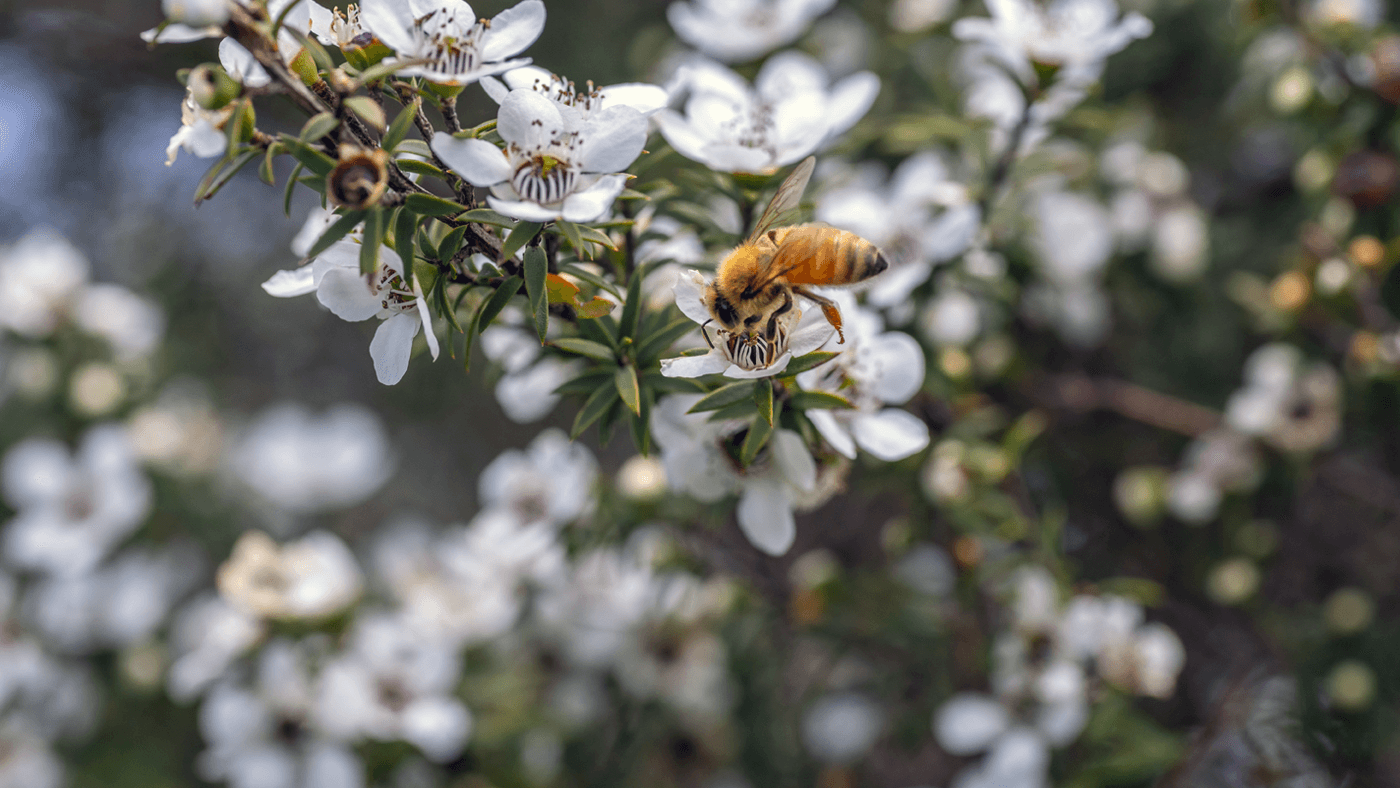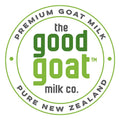What is New Zealand Manuka Honey?

Almost everyone who is interested in natural health knows that honey, and especially raw honey, is considered to be a super-food and all around beneficial substance with potent antimicrobial properties. Not only can honey help treat sore throats and allergies, but it can also be used in natural hair and skin treatments, and has even been used topically since ancient times for wound care.
Not all honey is created equal, though. The plants accessed by the bees producing a given honey will significantly affect the honey’s chemical composition. The rising star in the world of honey today is Manuka honey, which is produced by bees harvesting pollen from the Manuka tree that grows predominantly in New Zealand and parts of Australia. The Manuka tree (Latin name: Leptospermum scoparium) is a bushy tea tree in the same family (Myrtaceae, or myrtle) as the more-familiar melaleuca tree, which is the source of the antioxidant-rich melaleuca oil, also known as tea tree oil.
Here at the Good Goat Milk Company, we are excited about Manuka honey’s reported health benefits, and we are thrilled to introduce a new flavor of our flagship goat milk powder product: New Zealand Natural Full Cream Goat Milk Powder with Manuka Honey. You’re probably wondering what makes Manuka honey unique and why we are so sure you’ll love it as much as we do. Read on for answers to some of the most common questions about Manuka honey.

Where Does Manuka Honey Come From?
Manuka honey predominantly originates from the uncultivated areas along the eastern coastlines of New Zealand where the Manuka tree is plentiful. More specifically, it comes from bees that visit the flowers of the Manuka tree. For the brief few weeks that the Manuka is in bloom, beekeepers move their hives into the areas where these trees are the most abundant. Because the chemical and nutritional properties of honey are determined by the nectar source (flowers) that the bees visit, those that are exposed only to Manuka trees produce honey that is purely from this source.
What Makes Manuka Honey Unique?
Manuka honey is purer and more complex than typical table honey (the kind that’s usually sold in a teddy bear-shaped bottle in your grocery store). It contains natural chemical compounds in dense concentrations that conventional clover or wildflower honey cannot match. These include Leptosperin, a chemical only found in the nectar of Manuka flowers and those of a few closely-related botanical family members, and Methylglyoxal (MGO), which is created as bees process Dihydroxyacetone (DHA) from the Manuka nectar into honey. MGO is present in most honey, but Manuka honey may have hundreds of times more MGO than table honey.
Manuka honey is tested and graded on a scale called the Unique Manuka Factor (UMF) to ensure that each batch has the potency needed to provide claimed health benefits. The minimum concentration of MGO necessary to register on the UMF scale with the lowest rating of 5 UMF is 83mg, though a rating of at least 10 UMF (100mg of MGO) is needed to be considered potent enough to deliver antibacterial and antiviral health benefits. Some Manuka honey batches test as high as 16 on the UMF scale, and these are considered therapeutic grade, which can be used topically for things like wound care and eczema treatment.
What Are Manuka Honey’s Health Benefits?
While most raw honey (that which has not been pasteurized or filtered regardless of its source) has an array of stated health benefits ranging from anti-inflammatory properties to improved liver function, Manuka honey provides a long list of additional benefits. Like typical raw honey, Manuka honey is full of enzymes, B-complex vitamins, amino acids, and beneficial minerals, but in even higher concentrations.
Honey’s electrical conductivity is evaluated to test mineral content. Batches with the highest conductivity are thought to have the highest mineral content. Manuka honey, when tested, has shown to have four times the conductivity of other raw honey, making it a mineral powerhouse!
Manuka honey typically features antimicrobial activity at higher levels than in other types of raw honey. A UMF of at least 10 signals “some level of antimicrobial activity,” and this number is what you should look for in Manuka honey to experience dietary health benefits. So, what are some of those exact benefits? Lots of scientific research has been done to investigate, and has shown the following:
- Manuka honey can improve the health of the digestive systemManuka honey is a known remedy for gastritis, which is inflammation of the stomach lining that can cause pain, bloating, and heartburn among other nasty symptoms. Since Manuka honey features such high antimicrobial activity due to its elevated levels of MGO, it is effective against the Helicobacter pylori bacteria that is often responsible for gastritis and stomach ulcers.
- Manuka honey can prevent and repair damage to the colon. Because of its anti-inflammatory properties, Manuka honey has been effective in easing Inflammatory Bowel Disease, which can allow the colon to recover from previous structural damage.
- Manuka honey boosts immunity. The dense nutrient value of Manuka honey is beneficial to staving off illnesses like the common cold and flu.
- Manuka honey can improve dental health. The high mineral content in Manuka honey strengthens teeth and reduces plaque formation.
- Manuka honey promotes restful sleep. When ingested, Manuka honey releases glycogen, which is essential for the body to achieve a restful state where deep sleep is possible. It also helps the brain to release the “sleep hormone” melatonin, a key factor in restorative sleep. By adding a tablespoon of Manuka honey to your bedtime tea or glass of milk, you can combat insomnia and increase the amount of deep sleep you experience.
Try It! You’ll love New Zealand Manuka honey, too!
Not only is Manuka honey a potentially life-enhancing supplement—it’s also delicious! Many people choose to buy Manuka honey as a stand-alone product and add it to smoothies, drizzle it on waffles or pancakes, or mix into tea or other beverages. Here at the Good Goat Milk Company, we have found that it pairs perfectly with our New Zealand Full Cream Goat Milk Powder, of course. With our newest milk powder, our customers have an easy and convenient way to enjoy the taste and positive properties of Manuka honey that we have just discussed while reaping the extensive benefits of goat milk at the same time.
